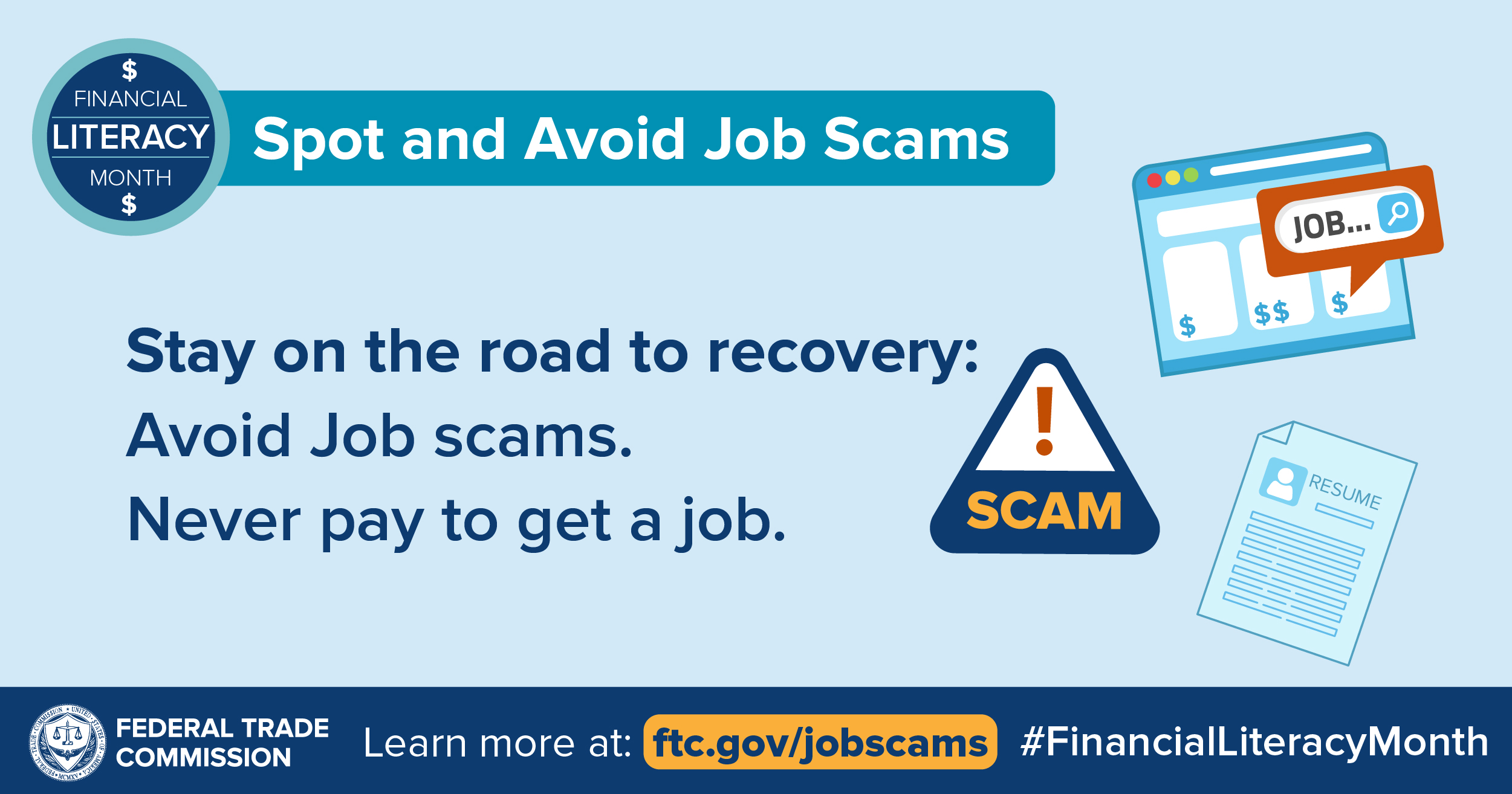 After more than a year of pandemic-related devastating losses — including job losses – you may be one of millions looking to get back on your feet with a new job. This Financial Literacy Month, as always, the FTC wants to help keep you on track with ways to avoid job scams.
After more than a year of pandemic-related devastating losses — including job losses – you may be one of millions looking to get back on your feet with a new job. This Financial Literacy Month, as always, the FTC wants to help keep you on track with ways to avoid job scams.
Scammers post ads online or in print for a variety of jobs, including work-at-home jobs. They sometimes even pretend to represent well-known companies or the government. But these ads are really just tricks to get your money or personal information. Here’s how to protect yourself:
- Never respond to ads guaranteeing you’ll get a job. Even if your qualifications are ideal, it’s never a sure thing that you’ll get the job.
- Avoid work-at-home ads guaranteeing you’ll make big money. No one can predict how much money you’ll actually make working for yourself.
- Never pay to get a job. Scammers may say they have a job waiting if you just pay a fee for certification, training, equipment, or supplies. But, after you pay, you find out the job is fake — and you won’t get your money back.
- Don’t bank on a “cleared” check. No legitimate company will ever send you a check and then tell you to send on part of that money, or gift cards. It’s a scam: that check is a fake and you’ll lose your money.
- Don’t believe ads for "previously undisclosed" federal government jobs. Information about federal jobs is publicly available at usajobs.gov.
- Research potential employers. Search online for a company’s name, email address, and phone number. If you’ve heard of the company, look on its website, call, or email to find out if the job is real.
- Find legitimate job listings. Try visiting sites like your state’s Career OneStop.
Learn more about spotting and avoiding job scams. And if you experience this or other scams, tell the FTC at ReportFraud.ftc.gov.
